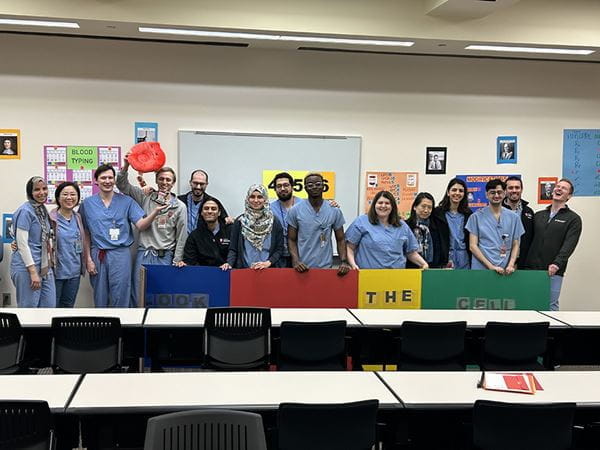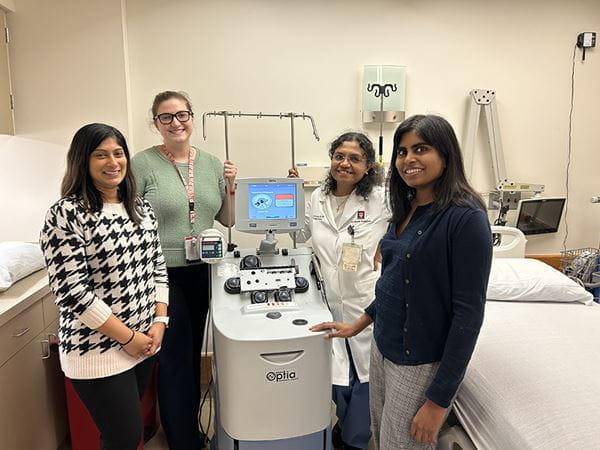The Department of Pathology and Laboratory Medicine at Indiana University School of Medicine is accepting applications for an ACGME-accredited one-year Blood Banking/Transfusion Medicine Fellowship. The fellowship provides training in hospital-based transfusion medicine, blood donor center medicine, apheresis and cellular therapy, with opportunities to explore coagulation and laboratory management.
The IU Health Academic Health Center (AHC) is a large tertiary care center which provides care to patients from across the state. It includes three downtown hospitals, which are the primary hospitals we serve: IU Health University Hospital, Riley Hospital for Children and IU Health Methodist Hospital. Approximately 50,000 red blood cell units are transfused every year within the AHC. We sign out hundreds of blood bank reports per year, including transfusion reactions and complex antibody workups in a diverse patient population consisting of both adult and children, and pregnant and highly alloimmunized patients. Our fellows see interesting blood bank cases from the AHC, the state-wide IU Health network, and the Immunohematology Reference Laboratory at the downtown Versiti Blood Center of Indiana.
Our team of faculty, fellows, residents, physician assistants and nurses provides coverage to our eight-bed outpatient apheresis clinic located within University Hospital, as well as 24/7 inpatient coverage for acute care within the AHC. Our rapidly growing department performed over 2400 procedures in 2024, and approximately 300 of these procedures were hematopoietic stem cell collections that were processed by our cellular therapy laboratory located across the hall from our apheresis clinic. Our cellular therapy laboratory processes approximately 400 hematopoietic stem cell transplants and 70 immune effector cells (CAR-T) per year.
Our approach to training is an active immersion in transfusion medicine. Fellows will present at and participate in daily and weekly rounding meetings, where patient care is discussed in a collaborative setting. They will gain graduated responsibility as the year progresses and teach residents, both informally while on service and formally at the weekly afternoon resident conference and at our monthly journal club. They will write up their own blood bank reports and sign them out with an attending who is available for questions and feedback. They will manage both collection and therapeutic apheresis procedures, and follow hematopoietic stem cell collections through the processing and infusion activities of the cellular therapy laboratory. Lab management is integrated into the training throughout the year, with frequent meetings addressing a variety of issues including current improvement projects, patient blood management, and transfusion utilization. Research activities are encouraged, including presenting abstracts and publishing articles, and such work is supported by faculty mentorship and by the financial assistance of the department. The Indiana State Association of Blood Banks (ISABB) is a valuable network with opportunities for regional engagement and giving presentations.
Our ultimate priority as a fellowship program is to prepare our graduates to be successful in a multitude of practice settings, including academic institutions and blood donor centers. We hope you visit and see what Indiana has to offer!





